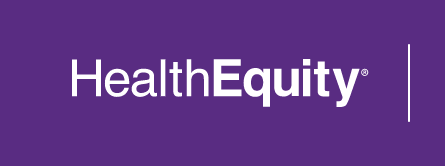One of the best ways to talk to your employees about how they can save money on healthcare expenses is to pose a hypothetical situation like the following:
Ask them to think about the last time they purchased a car. Did they go to any random dealership and purchase the first car they saw? While it is possible that some people purchase cars that way, the much savvier approach is for consumers to list the needs they have when it comes to a car, research the best prices and places to buy, then go to the dealership and purchase the car. This approach allows them to save money while still getting the best car that fits their needs.
Now, take the hypothetical situation and compare it to healthcare. While choosing healthcare options may not be as simple as purchasing a car, consumers (i.e. your employees) have more options than they might think when it comes to deciding how they spend their healthcare funds - especially if they have a health savings account (HSA).
Healthcare choices
The following are just a few of the options and choices that consumers have when it comes to healthcare:
- Treatment - For a simple cold, going to the emergency room is certainly an option, but much more expensive than going to an urgent care facility, which is more costly than going to a doctor's office, which will be more expensive and time-consuming than using a tool like telemedicine to get diagnosed immediately. On the other hand, for a severe cut or a serious illness, going to the emergency room is a much better choice than avoiding care altogether. All of these choices are up to the individual to determine what is best for them based on their healthcare needs.
- Comparing prescriptions - One of the most beneficial tools for healthcare is prescription drug price comparisons. Kiplinger notes that "several great tools on the web can make the search easy, educate you about your options and help you save a lot of money on your drugs." These tools alone can save your employees hundreds, or even thousands, of dollars each year on their prescriptions.
- Which healthcare option to choose - In the healthcare industry, there are three main types of healthcare options: preferred provider organization (PPO), health maintenance organization (HMO) and consumer directed health plans (CDHP). All have advantages and disadvantages, but only one, CDHP, provides your employees with greater decision making when it comes to their healthcare needs. This is important because each of your employees knows best what their family's healthcare needs are, and a CDHP gives them the freedom and responsibility to make the best decision based on their needs.
These are just a few of the choices people make when it comes to healthcare.
How an HSA can help
According to America's Health Insurance Plans, there was a 9 percent increase in enrollment of Americans who are choosing consumer-directed health plans paired with an HSA (from 20.2 million in 2016 to 21.8 million in 2017). Forbes Magazine recently wrote, "Most Americans ... should be taking full advantage of the amazing features that an HSA has to offer."
HSAs are a way for people to save money tax-free1 to pay for qualified medical expenses. An HSA can encourage your employees to be wise about spending their healthcare dollars so they can grow their HSA funds and, potentially, use those funds in retirement.2 Most health insurance providers - 85 percent according to AHIP -even provide guidance to their members by offering tools to "help members manage their health and finances."
This consumer directed health plan approach to healthcare can help people maximize their health savings now and in the future. Consumer directed healthcare also helps you as the employer because when your employees spend their healthcare dollars wisely, the savings can come back to you. And when your employees contribute to their HSAs via payroll deductions, you can save 7.65% per employee on FICA obligations. The opportunities for saving money for you and your employees with HSAs can really add up over time.
Conclusion
Just like purchasing a car, consumers have choices when it comes to purchasing healthcare. By choosing a consumer directed health plan paired with an HSA, your employees can take control of their healthcare and find value as they make smart healthcare choices. for future medical expenses or even for retirement.
HealthEquity does not provide legal, tax, financial, or medical advice.
1HSAs are never taxed at a federal income tax level when used appropriately for qualified medical expenses. Also, most states recognize HSA funds as tax-free with very few exceptions. Please consult a tax advisor regarding your state's specific rules.
2 After age 65, if you withdraw funds for any purpose other than qualified medical expenses, you will be subject to income taxes. Funds withdrawn for qualified medical expenses will remain tax-free.


